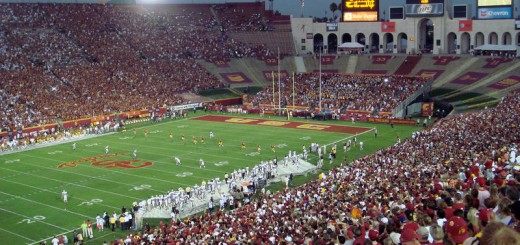Fifteen Seconds
I remember watching a pro football not too long ago and what I saw really opened my eyes. It was something that made an indelible impression in my mind in terms of demonstrating the absolute value of time in pro football, the importance of exactly how time management can often determine who wins and who loses football games. I don’t want to get into details as to the who or why they did what they did that day, only the what, because the issue of WHAT happened is what this is all about.
A team, which was trailing by three points, was on defense, had three time outs left and needed to stop the clock as quickly as possible so they could get the ball back with enough time to come back and either tie or win the game. The game seemed to be trending in the direction of the team on offense probably running three plays to eat up the other team’s three time outs, and then leaving their opponent with as little time as possible to mount their last minute comeback attempt.
With about a minute and a half left, a running play gained two yards. The team on defense kept looking to their sideline for directions. “What do we do?” “Are we supposed to call a time out?” “Is it okay to call a time out?” Five extra seconds ticked off the clock before it was finally stopped with 1:24 left. (There should have been 1:29 left)
On second down and eight yards to go, another running play gained three yards. Incredibly, another four extra seconds ticked off the clock after the play was over before the second time out was called and the clock stopped with 1:15 to play. Nine seconds had been wasted by the slowness of calling the time outs.
In the NFL, either players or coaches can call time outs. The players, right next to the play, were not the ones who called these time outs. It was their coach. But he was slow in getting to a ref to get these two called. At least nine seconds were lost on these first two downs. Why a team comprised of grown men can’t be trusted to do as simple of a thing as to decide when and why to call a time out is beyond me.
On third down and five, the offensive team kind of surprisingly ran a short pass play that stayed in bounds and did not gain a first down, as it only gained two yards. This time, the final time out was called quicker and only seemed to lose about one second (compared to letting players on the field call them and maybe losing ZERO?) before the clock was stopped with 1:07 left.
The team on offense punted the ball and it was not caught by the returner so by the time the ball was downed inside of the 20 yard line, there were only 55 seconds left. There should have been ten seconds more from the time outs, and if the punt was fielded properly with a fair catch, there probably would have been another five or six.
The approximately fifteen seconds that seemed to have been wasted is time ticked off of a clock that could never be recovered again in a close game like this. In a three point game that was going to come down to plays that go out of bounds or might include an incomplete or two, that could be anywhere from two to three more plays that could net a team ten to fifteen more yards. Those fifteen seconds would come back to haunt this team.
They get the ball with 55 seconds left to get them about the 55 or so yards that will be needed to get them within a reasonable distance to hit a game tying field goal (getting to their opponent’s 33 yard line would be about a 51 yard field goal). They have to gain about a yard for every second they have left on the clock. They have to get out of bounds every chance they can. Or, each time that they don’t get out of bounds, they have to spike the ball to kill the clock.
They run their “two minute offense.” A pass play to a running back gets them a first down near the 25 yard line. Another completion to a wideout gets them out of bounds at the 36 with about 34 seconds left. A few incompletions, then a completion near mid-field, and by the time they kill the clock, there are fifteen seconds left.
The frantic pace of the offense has rendered the opposition’s pass rush into nothing. All of the energy they’ve expended trying to rush the quarterback has only made them more fatigued. Their coach calls a defensive timeout to give them one last rest before they try to make their final stand at or around the 35 to keep their opponents out of field goal range.
Fifteen seconds to get about fifteen more yards. Actually, they will need to get the fifteen yards in fourteen seconds and to stop the clock to have enough time to get off their game-tying field goal attempt.
They throw a complete that only gets to the 40 yard line and it is stopped in bounds. They frantically race up to the line and spike the ball with ONE SECOND left. They would have time to get off a field goal attempt of about 58 yards and have that last chance to tie the game and send it into overtime. Their kicker’s career best was only 52 yards, but they knew they had to give it a shot and hope for a miracle.
After a time out, they lined up for their last second field goal attempt. Even though it was farther than he had ever kicked a successful field goal during a a field goal, he got all of this one. In the words of the announcer, “It’s high enough. It’s long enough. It… hits the left upright. No good.”
They lost the game. The kick was long enough, but the distance was just a few yards too far for his accuracy. If they had been even five yards closer, the kick, which was hooking towards the left upright, would have sneaked inside of the upright and been good. But it didn’t.
They probably WOULD have been closer had they had those fifteen seconds. The WASTED fifteen seconds. Almost every game has fifteen seconds that are wasted in one way or another. By the crummy teams. The good ones know when they will need those seconds during a close game. They conserve each and every key second that will be needed late in games with smartly called time outs, key moments of getting out of bounds and an overall, intelligently practiced hurry up offense.
The usage of something as seemingly insignificant as a mere fifteen seconds. Another example of the difference between winning teams and losing teams.




